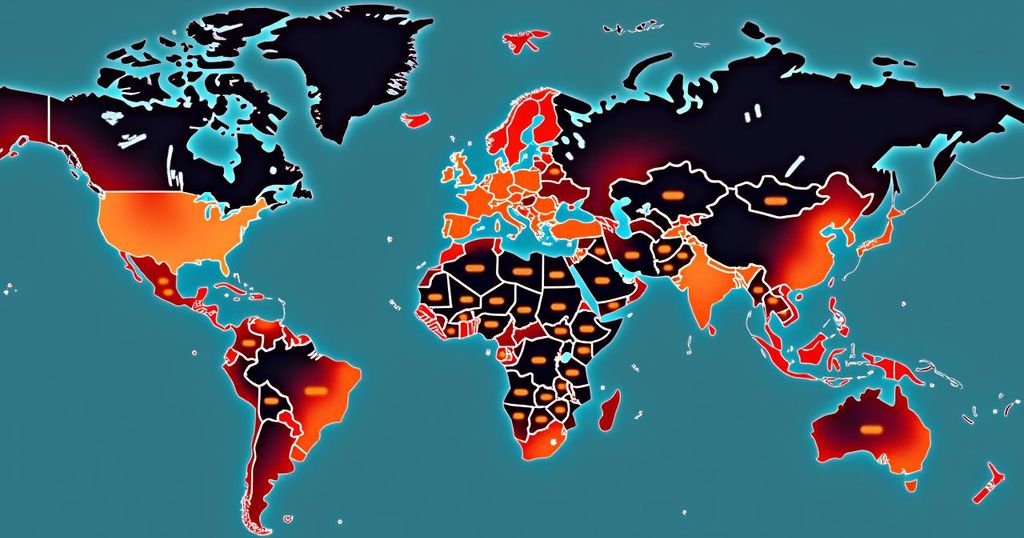Mpox cases have increased internationally, with Sweden, Thailand, the Philippines, and Pakistan confirming cases outside Africa, where the outbreak began. The WHO has termed the outbreak a public health emergency, stressing that current strains, particularly Clade 1, can be highly transmissible and potentially deadly, while Clade 2 remains less severe. Countries need to maintain vigilance to track and control further spread.
The mpox virus, which is increasingly alarming due to the emergence of a more virulent strain, has been reported in various regions globally. Presently, outside of Africa, Sweden, Thailand, the Philippines, and Pakistan have confirmed cases of mpox. A recent report indicates that mpox is not only prevalent in Africa, where fourteen countries confirmed cases, but it has also made its way to continents such as Asia and Europe. The situation became even more critical as the World Health Organization (WHO) classified the outbreak as a “public health emergency of international concern” while reassuring the public that mpox does not equate to COVID-19. The current mpox outbreak is caused primarily by the Clade 1 strain, which shows a higher possibility of transmission through skin-to-skin contact. This outbreak traces its origins back to the Democratic Republic of the Congo (DRC), where Clade 1b was identified in 2023, leading to a massive rise in cases. The DRC has reported the highest instance of the disease with approximately 13,791 cases and a mortality rate that includes a significant proportion of children. In contrast, Clade 2, which was linked to a broader global outbreak last year, appears to cause milder illness. Though this Strain has led to 62,000 reported cases in the Americas since 2022, it remains less lethal than Clade 1 with a notably lower fatality rate. In Asia, the mpox virus has spread recently with Thailand’s confirmation of a Clade 1b case, marking the first such case in Asia. Moreover, the Philippines has recorded a case attributed to the milder Clade 2 variant, while Pakistan has reported its first case involving the same strain, albeit with challenges in tracking the individual due to migration before diagnosis. Sweden also confirmed a single instance of the Clade 1 strain.
The increasing incidence of mpox, formerly known as monkeypox, has prompted a global health response due to the identification of a more aggressive strain of the virus, particularly Clade 1. This outbreak has garnered international attention since its initial reports in East Africa, specifically the Democratic Republic of the Congo (DRC), where the number of cases has surged dramatically. It is also important to highlight that while mpox remains a concern, the WHO cautions against conflating it with COVID-19, emphasizing the unique characteristics and transmission modes associated with mpox. With confirmed cases now reported in multiple continents, the potential for wider spread necessitates vigilant monitoring and public health initiatives to mitigate transmission risk.
In summary, the mpox virus has been spreading internationally, with confirmed cases now extending beyond the African continent to regions such as Asia and Europe. The emergence of the Clade 1 strain has raised concerns regarding the virus’s transmissibility and the potential severity of infections. The WHO’s classification of the outbreak as a public health emergency highlights the urgency for increased awareness, testing, and contact tracing to effectively manage this growing health crisis. Continued vigilance is critical, particularly among nations that have recorded new cases, to halt the proliferation of this disease.
Original Source: www.aljazeera.com






